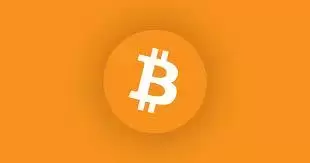 |
|
 |
|
 |
|
 |
|
 |
|
 |
|
 |
|
 |
|
 |
|
 |
|
 |
|
 |
|
 |
|
 |
|
 |
|
重大な政治的展開に伴うビットコイン価格の劇的な上昇は、広く注目を集めています。しかし、主流通貨としての長期的な採用に影響を与える根本的な問題も同様に切実です。公の場での議論はしばしばその経済的可能性を中心に展開しますが、他の多くの要素が物語を形成しており、それらを理解することで将来の経済情勢に光を当てることができます。

Bitcoin's potential trajectory is a hot topic as the world watches the changing political and economic landscape. Following Donald Trump’s reaffirmation as U.S. president and the rise of cryptocurrency-friendly legislators, bitcoin saw substantial gains, reaching a price of around $41,000, an increase of 35 percent in just one week. Enthusiasts are hopeful that bitcoin might soon shed its image as a speculative asset and become a widely accepted currency. But an emerging study points to a complex challenge facing potential widespread bitcoin adoption.
政治的、経済的状況の変化に世界が注目する中、ビットコインの潜在的な軌道はホットな話題となっている。ドナルド・トランプ氏の米国大統領としての再承認と仮想通貨に好意的な議員の台頭を受けて、ビットコインは大幅な上昇を見せ、価格はわずか1週間で35%上昇し約4万1000ドルに達した。愛好家らは、ビットコインが近いうちに投機資産としてのイメージを払拭し、広く受け入れられる通貨になるのではないかと期待している。しかし、新たな研究は、ビットコインの広範な普及が潜在的に直面している複雑な課題を指摘しています。
Published in the Journal of Behavioral and Experimental Economics, the research highlights a curious mindset among bitcoin investors. Far from being solely driven by financial aspirations, these individuals are motivated by a thirst for financial independence and are skeptics of traditional financial systems. They advocate for a meritocratic society that minimizes government intervention in wealth distribution.
Journal of Behavioral and Experimental Economyに掲載されたこの研究は、ビットコイン投資家の好奇心旺盛な考え方を浮き彫りにしています。これらの人々は、経済的願望のみによって動かされているのではなく、経済的自立への渇望によって動機付けられており、従来の金融システムに懐疑的です。彼らは、富の分配に対する政府の介入を最小限に抑える能力主義社会を主張しています。
This ethos aligns seamlessly with the foundational principles of bitcoin as a decentralized, government-free currency. Yet, a paradox emerges. If bitcoin were to gain mainstream popularity, it would necessitate increased governmental oversight to maintain financial stability and consumer safeguarding. A delicate balance must be struck between the essence of bitcoin and the regulatory requirements for mass adoption.
この精神は、政府の関与しない分散型通貨としてのビットコインの基本原則とシームレスに一致しています。しかし、矛盾が生じます。ビットコインが主流の人気を獲得した場合、金融の安定と消費者の保護を維持するために政府の監視を強化する必要があるだろう。ビットコインの本質と大量採用のための規制要件との間で、微妙なバランスを取る必要があります。
Additionally, a lingering question remains around bitcoin’s real-world usability. Its potential appreciation encourages investors to hold rather than spend, disrupting its function as a circulating currency. This behavior, coupled with bitcoin's limited transaction capacity, hinders its practical use for everyday purchases.
さらに、ビットコインの現実世界での使いやすさに関しては、依然として疑問が残っています。潜在的な値上がりにより、投資家は消費するのではなく保有するようになり、流通通貨としての機能が混乱します。この動作は、ビットコインの限られた取引容量と相まって、日常の買い物での実際の使用を妨げています。
The pursuit of mainstream acceptance for bitcoin still requires reconciling its fundamentally anarchic allure with regulation—a balance that challenges its core investors. As its prospects hang in the balance, individuals are urged to address these paradoxes carefully when including bitcoin in their financial portfolios. Diversification and caution remain key strategies amid bitcoin’s volatile landscape.
ビットコインが主流に受け入れられるよう追求するには、依然としてその根本的にアナーキーな魅力と規制、つまり中核的な投資家にとって課題となるバランスを調和させる必要がある。その見通しが危ぶまれているため、個人は金融ポートフォリオにビットコインを組み込む際に、こうした矛盾に慎重に対処することが求められています。ビットコインの不安定な情勢の中で、多様化と慎重さが依然として重要な戦略である。
Can Bitcoin Overcome its Biggest Hurdles and Transform the Financial World?
ビットコインは最大のハードルを乗り越え、金融界を変革できるのか?
The dramatic rise in bitcoin prices following significant political developments has captured widespread attention. However, the underlying issues impacting its long-term adoption as a mainstream currency are equally compelling. While public discourse often revolves around its financial potential, numerous other elements shape the narrative, and understanding them can shed light on the future economic landscape.
重大な政治的展開に伴うビットコイン価格の劇的な上昇は、広く注目を集めています。しかし、主流通貨としての長期的な採用に影響を与える根本的な問題も同様に切実です。公の場での議論はしばしばその経済的可能性を中心に展開しますが、他の多くの要素が物語を形成しており、それらを理解することで将来の経済情勢に光を当てることができます。
Bitcoin’s Energy Consumption Dilemma
ビットコインのエネルギー消費のジレンマ
One of the most controversial aspects of bitcoin is its energy consumption. The process of mining bitcoin, which is fundamental to validating transactions on the blockchain, requires substantial energy resources. Some reports suggest that bitcoin’s energy consumption rivals that of entire countries, and environmentalists argue that the cryptocurrency’s growth could exacerbate climate change. As nations increasingly prioritize sustainable development, the high carbon footprint associated with bitcoin poses a significant hurdle for widespread adoption.
ビットコインの最も物議を醸す側面の 1 つは、そのエネルギー消費です。ビットコインのマイニングのプロセスは、ブロックチェーン上のトランザクションを検証するための基礎であり、大量のエネルギー資源を必要とします。一部の報告では、ビットコインのエネルギー消費量は国全体のエネルギー消費量に匹敵すると示唆されており、環境活動家らは仮想通貨の成長が気候変動を悪化させる可能性があると主張している。各国が持続可能な開発をますます優先する中、ビットコインに関連する二酸化炭素排出量の多さは、広く普及するには大きな障害となっています。
How Does Bitcoin Influence Economic Inequality?
ビットコインは経済的不平等にどのような影響を与えるのでしょうか?
Another important aspect revolves around economic inequality. Proponents argue that bitcoin can democratize finance by providing access to anyone with an Internet connection, especially in communities where traditional banking is inaccessible. However, the reality is that early adopters and those with significant resources continue accumulating a large portion of the bitcoin supply, thereby potentially contributing to greater economic disparity. This raises the question: Can bitcoin truly serve as a tool for financial democratization, or does it simply amplify existing inequalities?
もう 1 つの重要な側面は、経済的不平等を中心に展開しています。支持者らは、ビットコインは、特に従来の銀行取引が利用できないコミュニティにおいて、インターネット接続があれば誰でもアクセスできるようにすることで金融を民主化できると主張している。しかし現実には、アーリーアダプターや多額のリソースを持つ人々がビットコイン供給の大部分を蓄積し続けており、それによって経済格差の拡大につながる可能性があります。このことから、ビットコインは本当に金融民主化のツールとして機能することができるのか、それとも既存の不平等を増幅させるだけなのでしょうか?という疑問が生じます。
The Question of Volatility
ボラティリティの問題
Bitcoin’s notorious volatility remains a significant concern. While volatility can lead to substantial profits, especially for those who time the market well, it also entails considerable risks, and many could face substantial losses. For many, this is a double-edged sword, as the promise of high returns is tempered by the risk of severe losses. For countries contemplating incorporating bitcoin into their financial systems, this unpredictability could undermine economic stability. Could stablecoins or new technologies be the solution to this volatility problem?
ビットコインの悪名高いボラティリティは依然として大きな懸念事項です。ボラティリティは、特に市場のタイミングをうまく計った人にとっては大きな利益につながる可能性がありますが、同時にかなりのリスクも伴い、多くの人が多額の損失に直面する可能性があります。多くの人にとって、これは両刃の剣であり、高い利益の約束が重大な損失のリスクによって弱められるからです。ビットコインを金融システムに組み込むことを検討している国にとって、この予測不可能性は経済の安定を損なう可能性があります。ステーブルコインや新しいテクノロジーは、このボラティリティの問題の解決策となるでしょうか?
Advantages and Disadvantages of Bitcoin
ビットコインの長所と短所
The potential advantages of bitcoin are numerous. It offers the possibility of low transaction fees, especially compared to traditional banking systems, enhanced privacy due to its decentralized nature, and decentralized control, which may appeal to those critical of centralized banking systems. Additionally, bitcoin can act as a hedge against inflation, attracting investors wary of traditional currencies losing value over time.
ビットコインの潜在的な利点は数多くあります。これは、特に従来の銀行システムと比較して低い取引手数料、分散型の性質によるプライバシーの強化、および分散型制御の可能性を提供しており、これは集中型銀行システムに批判的な人々にとって魅力的である可能性があります。さらに、ビットコインはインフレに対するヘッジとしても機能し、従来の通貨が時間の経過とともに価値を失うことに警戒する投資家を惹きつけています。
On the other hand, disadvantages include its complexity for average users, especially those who are not tech-savvy or familiar with cryptocurrency concepts, potential for use in illegal activities due to its anonymity, and the lack of a robust legal framework that protects consumers, particularly in the event of scams or fraud involving bitcoin transactions. These factors complicate its pathway to becoming a mainstream currency.
一方で、欠点としては、平均的なユーザー、特に技術に精通していない、または暗号通貨の概念に精通していないユーザーにとっての複雑さ、匿名性による違法行為での使用の可能性、消費者を保護する堅牢な法的枠組みの欠如が挙げられます。特にビットコイン取引に関わる詐欺や詐欺の場合。これらの要因が、主流通貨になるまでの道のりを複雑にしています。
Looking to the Future
未来を見据えて
For individuals and countries alike, the question remains: Is embracing bitcoin worth the risks? The roadmap for bitcoin’s integration into everyday life is littered with uncertainties, from technological advancements to regulatory frameworks. Understanding these elements can help stakeholders make informed decisions about bitcoin’s role in their financial strategies.
個人にとっても国にとっても同様に、ビットコインを採用することにリスクを負う価値があるのかという疑問が残ります。ビットコインを日常生活に統合するためのロードマップには、技術の進歩から規制の枠組みに至るまで、不確実性がたくさんあります。これらの要素を理解することは、利害関係者が財務戦略におけるビットコインの役割について情報に基づいた意思決定を行うのに役立ちます。
As this debate unfolds, staying informed and cautious is critical. Whether you’re an investor, policymaker, or curious onlooker, the future of bitcoin is a topic worthy of attention. For more insights into the world of cryptocurrencies, visit Coindesk and Cointelegraph.
この議論が展開するにつれ、常に情報を入手し、慎重になることが重要です。あなたが投資家、政策立案者、または好奇心旺盛な傍観者であっても、ビットコインの将来は注目に値するトピックです。暗号通貨の世界についてさらに詳しく知りたい場合は、Coindesk と Cointelegraph をご覧ください。
免責事項:info@kdj.com
提供される情報は取引に関するアドバイスではありません。 kdj.com は、この記事で提供される情報に基づいて行われた投資に対して一切の責任を負いません。暗号通貨は変動性が高いため、十分な調査を行った上で慎重に投資することを強くお勧めします。
このウェブサイトで使用されているコンテンツが著作権を侵害していると思われる場合は、直ちに当社 (info@kdj.com) までご連絡ください。速やかに削除させていただきます。


























































